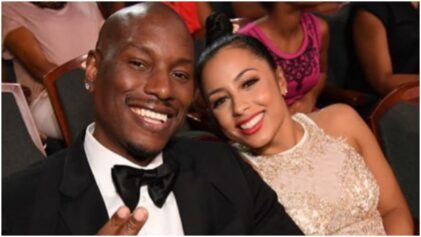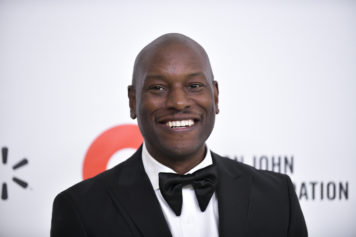Tyrese Gibson has a movie called “Black and Blue” that will hit theaters on Oct. 25, and he used a promotional video for the film to talk about his aversion to slave movies.
The way Gibson sees it, there’s been far too many slave movies as is, and to highlight his point he showed images from the films “Birth of a Nation,” “Roots,” “12 Years a Slave,” and the upcoming release “Harriet,” based on Harriet Tubman.
The 40-year-old said Hollywood seems to be fixated on these kinds of films, and studios are far less interested in showing black people in powerful positions.
“How many more slave movies?” asked Gibson. “When you support these movies that highlight us about things that happened in our history, is that the sum of what you know of black people? How many more nannies? How many more butlers? How many more slaves? How many more movies that’s going to project this energy off on to us, as if that’s all we ever was?”
He then spoke about the film “Black Panther” and said it was a game-changer, because it showed black folks in a different light.
“Movies like ‘Black Panther’ changed everything,” Gibson stated. “Why did it change everything? Because domestically and internationally we have finally been highlighted as the kings and queens that we are.”
“They don’t want to show the black billionaire,” he added. “They don’t want to show the black man that’s on Wall Street or the moguls that’s in real estate.”
People on social media had plenty to say after Gibson’s comments surfaced, and some agreed with him about there being too many slave movies, while others said they were necessary.
“I LOVE slave movies,” one person wrote. “Show it ALL! Understand where the generational wealth gap came from. KNOW that American descendants of slavery built the greatest country in the world and were never compensated and are owed til this day!”
“I have vouched to never watch a slave or Mammy movie and will continue to do so,” someone else commented. “This is an intentional portrait they want to maintain and pass down to the next generation. We were more than slaves.”


